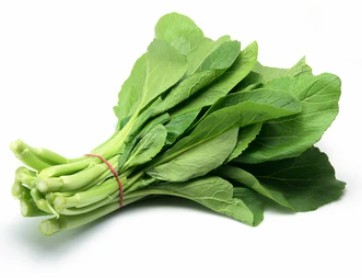Brassica campestris L. ssp. chinensis var. utilis tsenet lee, also known as flowering cabbage, is a one- or two-year-old herb in the Brassica family of the Cruciferae. It is a widely grown vegetable in all parts of the world. Flowering cabbage has high edible and nutritional value, containing proteins, fats, carbohydrates, minerals, and rich vitamins. Good quality and marketable flowering cabbage usually have high levels of soluble protein, soluble sugar, vitamin C, and low levels of crude fiber. Through genetic transformation, transgenic plants can retain a variety of their original good traits while adding another trait controlled by a target gene. This can provide biological traits such as drought, cold, or insect resistance to the transgenic flowering cabbage, thus enhancing the organism's survival.

Lifeasible has been committed to providing you with professional flowering cabbage genetic transformation services that can help advance the process of your related breeding research projects. Our flowering cabbage genetic transformation platform has an efficient experimental process, professional technical service support, and mainstream molecular biology experimental equipment. Based on this, we use Agrobacterium-mediated transformation to provide solutions targeting the improvement of rapeseed traits. First, our experts use the cotyledons of flowering cabbage as the transgenic recipient material and infest the recipient material with Agrobacterium carrying the target gene vector. Subsequently, after resistance screening, we can obtain independently resistant healing tissues. Finally, the healing tissues will be differentiated and regenerated into the target transgenic strains. In addition, we offer a variety of vector structures for you to choose from, as shown below.

Customers can provide constructed flowering cabbage transformation vectors directly, and Lifeasible also offers vector construction services.
| Concentration | Volume | Other requirements |
| 80-100 ng/μL | ≥10 μL | no degradation & no contamination |
| Bacterial broth | Bacterial plate |
| Bacterial broth up to 1-year-old, preserved in glycerol | Bacterial plate activated within one week |
*For special varieties and customized services, the experiment time and the number of seeds needed may be increased. For this, please contact our staff for more information.
*Plasmids, E. coli, and Agrobacterium require cryopreservation and mailing under dry ice to avoid degradation, inactivation, and impact on experimental results.
*The strains, vectors, and receptor materials used in the experiment can be saved for free for half a year for customers, and you can pick them up at any time if you need them.
Our flowering cabbage gene transformation service is equipped with experienced experts throughout the process to facilitate advice and consultation with our customers during the experimental process. We not only keep our customers up to date with the key points of the experiments but also report the results to you regularly. So you will not miss any important stage in the progress of your project. Our one-stop service is designed to reduce wasted time and lower your research costs. We will do as much work as possible, and all you need to do is submit samples as required and wait patiently for the results agreed with us.
Lifeasible's experts have comprehensive knowledge and years of experience in solving technical problems and challenges in brassica campestris L. ssp. chinensis var. utilis tsenet lee transformation. We can provide customized solutions to help you study a wide range of flowering cabbage varieties. Our services guarantee the success of your project. For more information or any inquiry needs, please feel free to contact us.